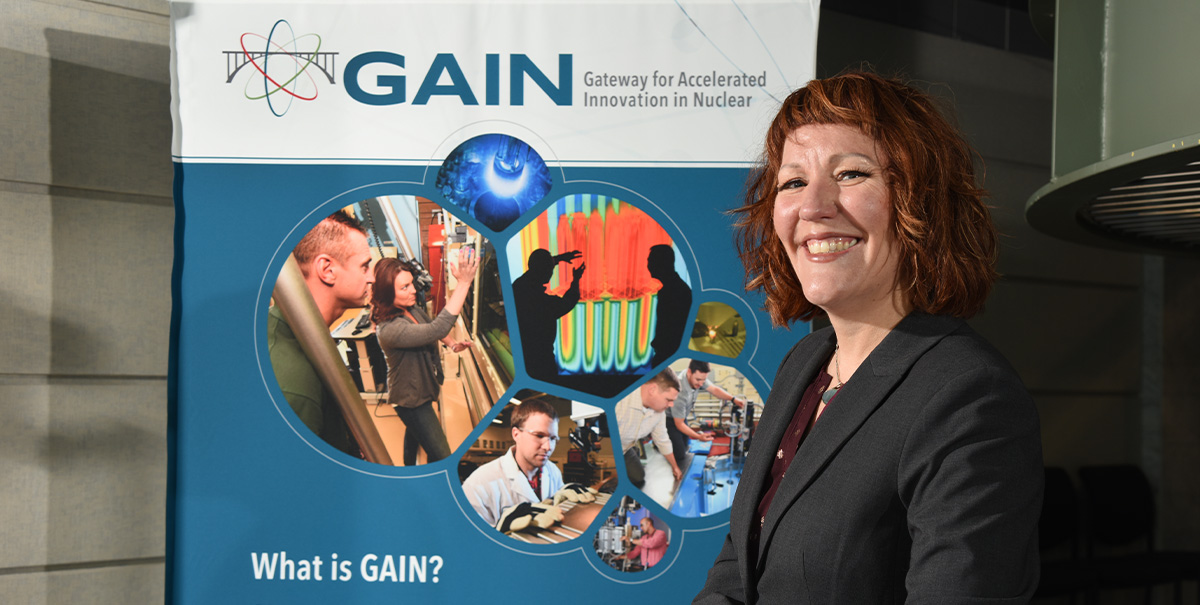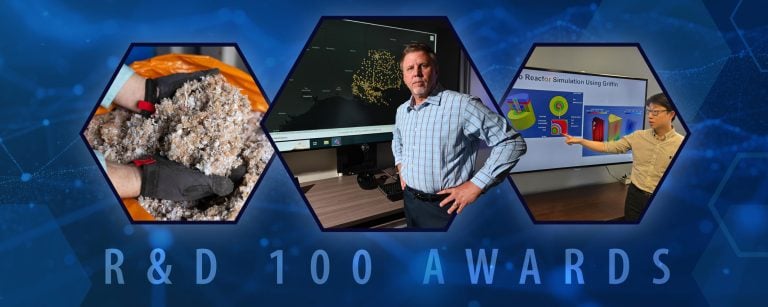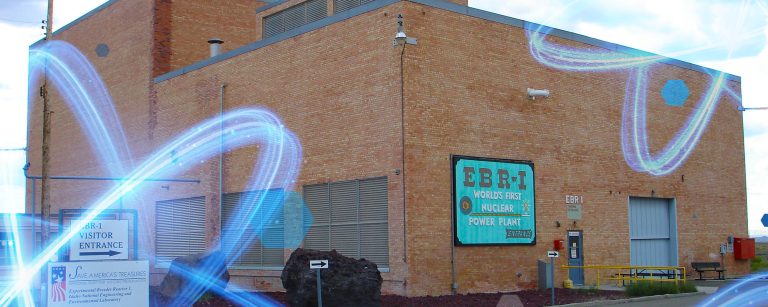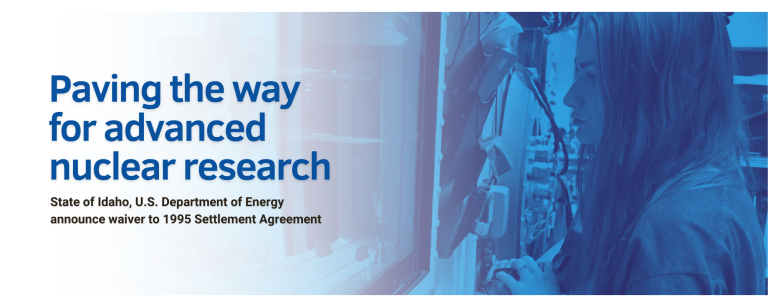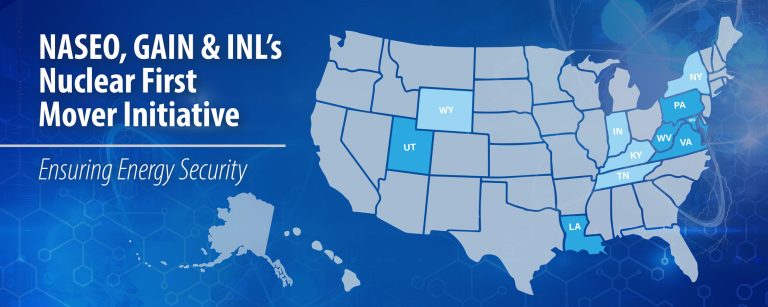Government contracts are complex and difficult to decipher. For Rachel Taow, it’s a language she mastered largely due to her training in the U.S. Army as a cryptanalyst, a Persian Farsi linguist and signals intelligence analyst.
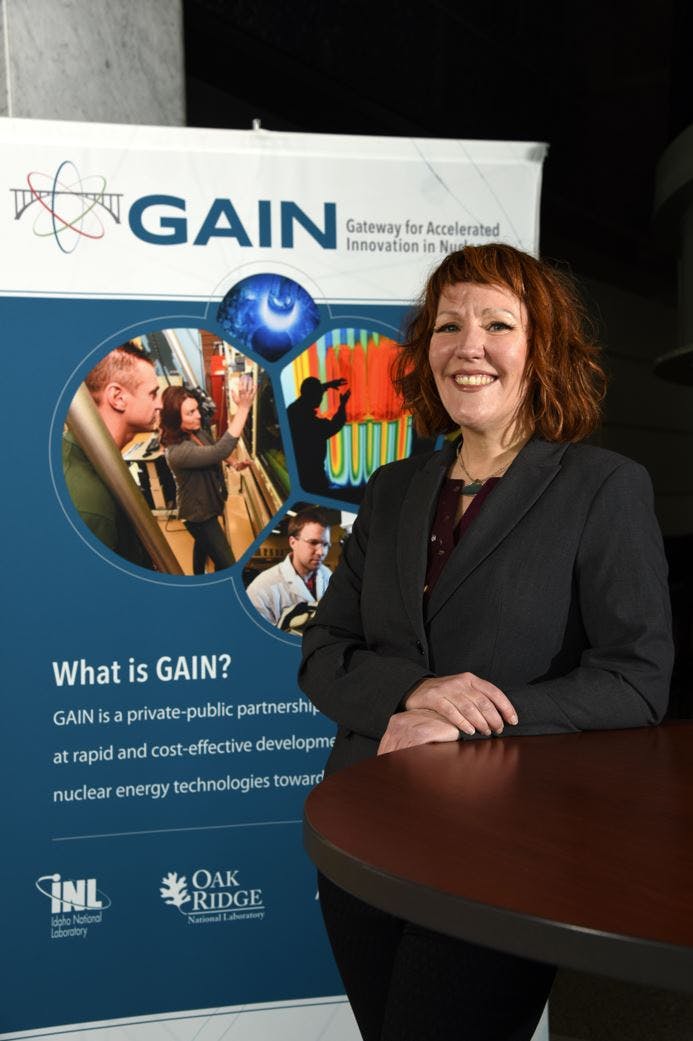
At GAIN, a U.S. Department of Energy initiative led by Idaho National Laboratory, Taow works on contracting mechanisms to speed up nuclear research. Her success in six years at INL includes negotiating various high-profile agreements with industry partners.
She is most excited about last year’s passage of the $1 trillion infrastructure legislation, which contains more than $62 billion for DOE to deliver a “more equitable clean energy future,” including investing in advanced nuclear projects. In the area of contracting modernization, it statutorily extends the protection period for Cooperative Research and Development Agreements between industry and labs from 5 years to up to 30 years.
“This is huge,” Taow said. The nuclear industry lobbied for the change because it needed a longer protection period to perfect innovations.
GAIN Director Christine King credits Taow’s persistence and passion for getting things done.
“It is not often that you find someone passionate about better processes and creating the win-win,” King said. “Rachel is practical in her approach by listening to the needs of the DOE and private industry. She creates process solutions that help us move through contracting and doing the work in the lab faster.”
Child prodigy
Taow was born in Oakland, California, the oldest of five children. Parental expectations were high after she taught herself to read at just over 2 years old. “It’s hard to peak at 2 1/2,” she said with a laugh. “I grew up with the sense that I am not as smart as my parents think I am.”
Her family moved to Idaho Falls when she was 5. Her father, a physicist, worked at INL on a variety of projects.
She joined the Army after high school. “I wanted to explore the world and serve my country,” she said. She chose to learn a foreign language only spoken in parts of Iran, Afghanistan and Tajikistan.
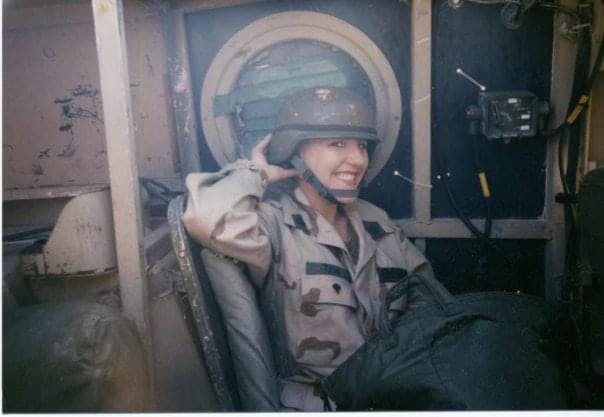
She was assigned to the National Security Agency as a Farsi linguist and signals intelligence analyst. She trained as a cryptanalyst and took to decoding messages like she learned to read: “I was able to decode a message in eight hours, for which we were given 24 hours to solve. For years, I maintained the record as the fastest student in the history of the course to decode the message.”
She left the Army in 2003, moved back to Idaho Falls and enrolled at Idaho State University, where she earned a bachelor’s degree in international studies.
Taow worked for an environmental consulting firm after college evaluating proposals to build military bases in the Middle East. She later worked with researchers as a grant specialist at her alma mater before joining INL in 2016.
Initially, Taow was hired as a research agreements specialist. “I negotiated and executed INL research agreements with private industry entities and other parties, which means that most of what I negotiated involved contracting terms and conditions focused on specialized areas of law, particularly intellectual property,“ she said. “This often becomes critical in successfully negotiating nuclear energy–related research agreements.”
Over a year ago, she joined GAIN to pilot modernization strategies for executing research agreements between the federal government and nuclear industry. “The laws concerning government research funding are sorely outdated when pertaining to nuclear and other types of energy research, which tend to have very long commercialization life spans,” Taow said.
In addition to working for GAIN, she is enrolled at University of New Hampshire’s Franklin Pierce School of Law, which specializes in intellectual property.
“I am passionate about this work,” Taow said. “I believe that a law degree specializing in intellectual property is an excellent way for me to make an impact in the DOE complex by using this knowledge to steer advanced nuclear reactor designs toward commercialization.”
In the end, her efforts will play a role in advancing nuclear energy. “The aim is to increase the number of public-private partnerships.” Taow said, “Increased partnerships will help us reach our number one goal in GAIN, which is to provide nuclear industry entities access to national lab capabilities to accelerate commercialization of innovations through research, development, demonstration, and deployment.”

